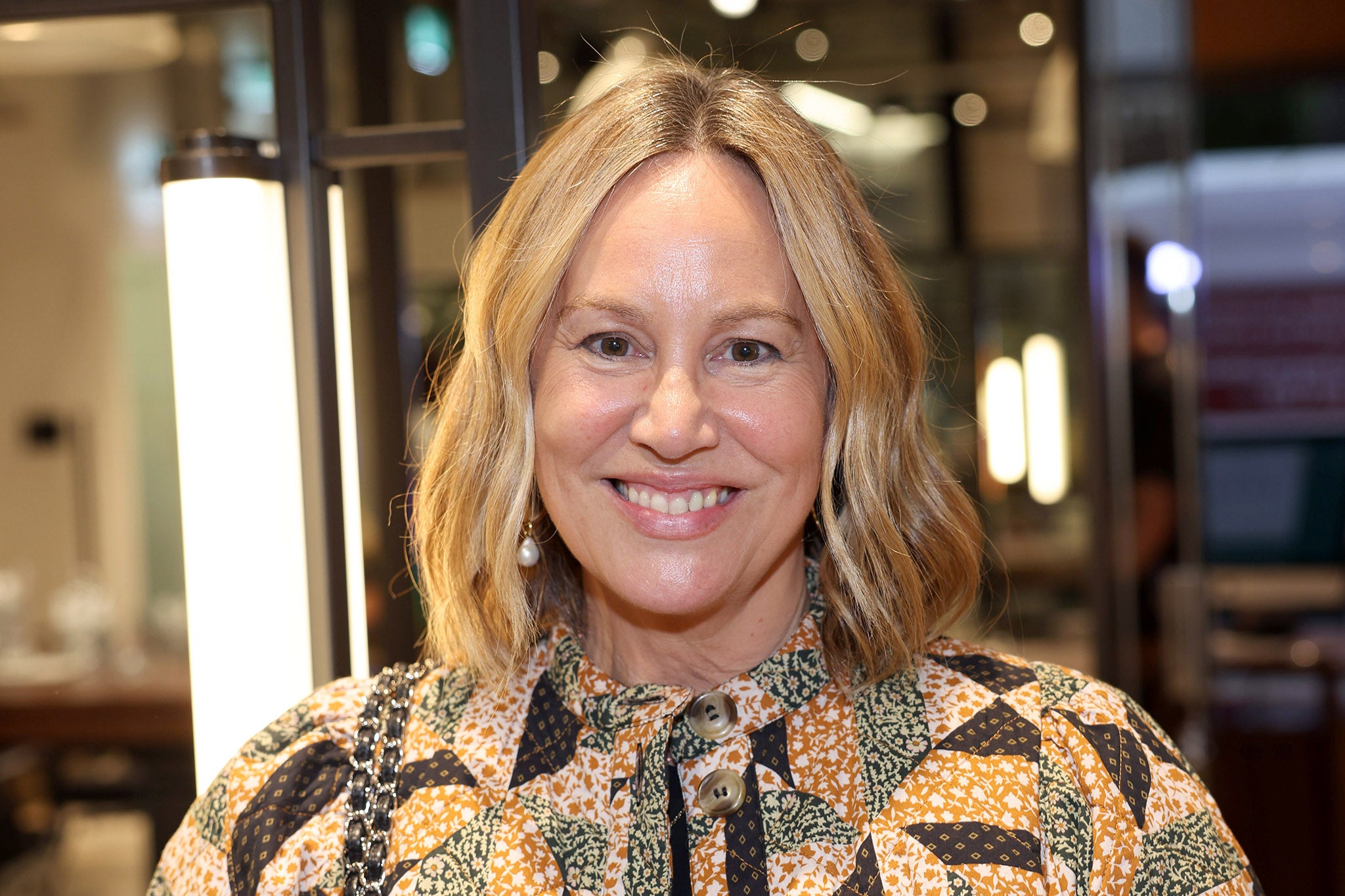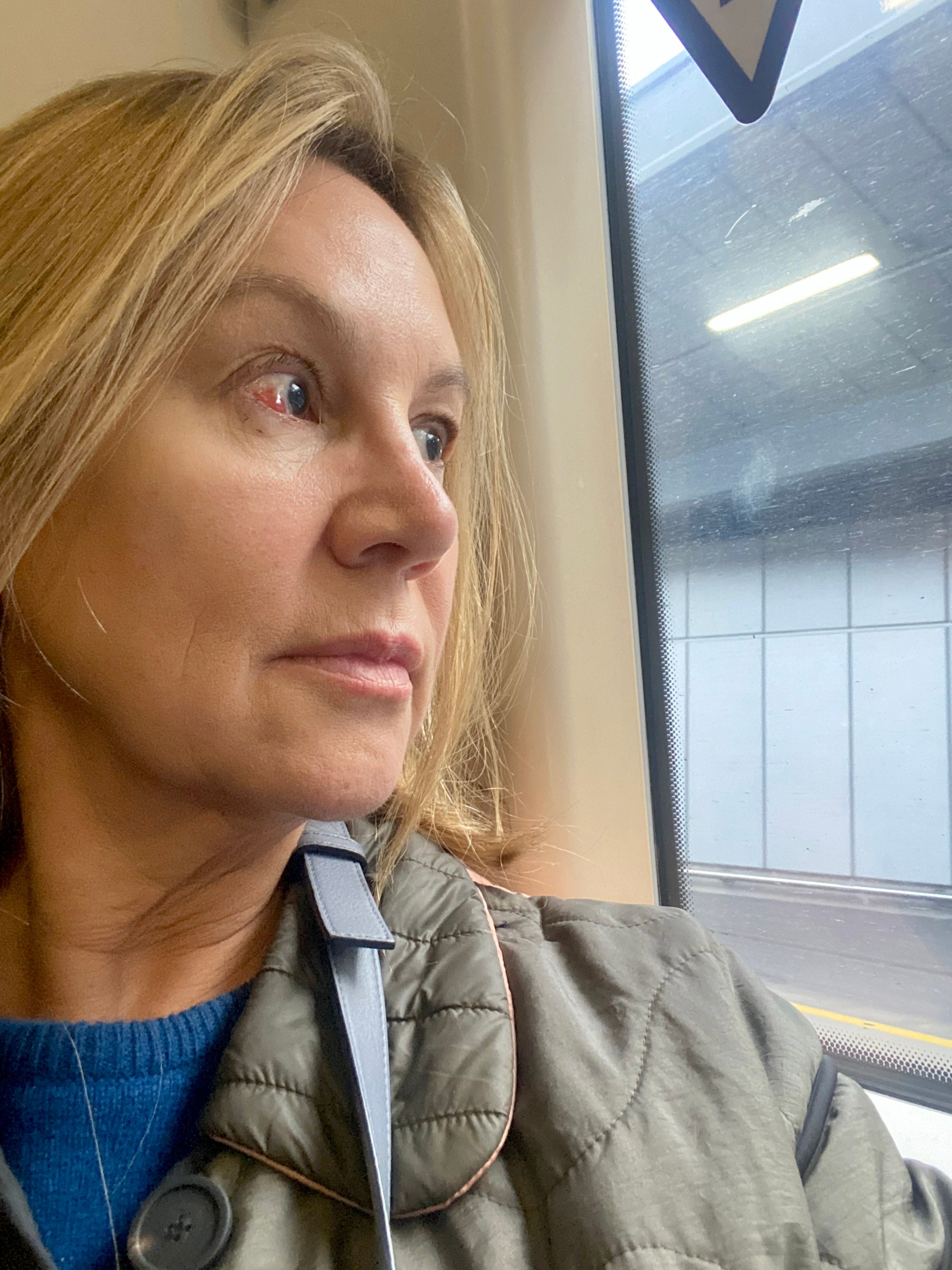Waiting for an NHS appointment could have had a devastating impact on my life
When her sight started to blur in one eye, Marianne Jones wasn’t too worried – but what happened next was terrifying and exposes the broken state of an NHS system failing millions of patients every day

It was three days before my silver wedding anniversary holiday that I booked an optician’s appointment to check out my suddenly blurry right eye.
For days previously, all I could see were wavy lines, distorted faces and floating blobs. I’ve been extremely short-sighted since I was a teenager (my nickname is Mr Magoo) and have check-ups more regularly than most. So, I was concerned but not overly so, putting my eye problems down to the strain of staring at the computer for too long. Still, I wanted to put my mind at rest before heading off for a 12-hour flight to Mauritius, for a celebration we’d saved long and hard for.
I hadn’t planned for the potential dire consequences of my symptoms, or the very British drama that came next. One hour later, on a Friday afternoon, the optician studied a scan of my problematic eye and declared I needed emergency treatment for what appeared to be fluid leaking into my retina.
I was told to head to the A&E department at Moorfields NHS Eye Hospital in London, as soon as possible. “You never know, they might treat you straight away,” my optician offered, not very convincingly.
I fear he knew what was coming. I arrived at Moorfields bright and early the next day as an emergency out-patient. A kind security guard pointed out the reception area, where I fumbled with the paperwork and tried to return it through the wrong gap. By now I could only make out dark shapes through my bad eye and even putting one foot in front of the other was disconcerting. I was nauseous, disorientated and alone, my husband having driven to the Midlands the previous morning to drop off our dog with relatives.
There was already a queue, but not a huge one. After handing in my “cheese counter” numbered ticket, I joined a row of other patients on plastic chairs. One woman was sobbing, her husband with his arms around her, another couldn’t open her eyes and had to be led around by the professional but harried staff who looked like they hadn’t sat down in a long time.

Two sets of tests and three hours later, I was ushered into a tiny, blue-curtained booth, where a registrar told me that I had a condition called Myopic CNV, brought on by my short-sightedness and resulting in blood vessels growing where they shouldn’t and leaking into my retina. It’s not common and it is very serious. The treatment – an injection into the eye – took seconds, was easy to administer and had a high success rate. But speed was of the essence and I was already approaching the danger zone.
I kept hearing the words “urgent” and “emergency” and it suddenly occurred to me that I was in real danger of losing my sight.
I’m almost certain that, had I waited the full three weeks, I would now be blind in one eye
A member of staff was dispatched to find the next available slot for treatment. Naively, I presumed it would happen that same day, but she returned to report that the next emergency NHS appointment at Moorfields was in three weeks’ time.
The registrar said what I was thinking: “That’s too late”, and picked up the phone to call hospitals nearer to my home in Kent (I’d chosen Moorfields that day because it was the easiest hospital to get to on public transport). Eventually, she reached a registrar at the ophthalmology department of Queen Mary’s Hospital in Sidcup. More “urgents” were used and I was put into their system. I asked how soon the hospital might contact me, the registrar hoped it would be soon but gave me the phone number to write down. I must call them first thing Monday morning, she told me. I thought it was odd to be asked to chase up my own emergency referral, but sensed that she had been here before.
My worried husband and delighted dog arrived back home that night to find me in a state of panic, the sight in my eye having become progressively worse. I wasn’t in pain but could see almost nothing but dark shapes. After two sleepless nights and the day I should have been jetting off to the sun, I shakily called the hospital phone number. Over the next two hours, I repeated this dozens of times, but the line simply rang out before cutting me off.
The craziness of being unable to contact the hospital I’d been told to chase so that I didn’t go blind, led to us quickly making the decision to go private. I simply wasn’t prepared to play Russian roulette with my eyesight.
I called Moorfields – this time its private wing. They answered straight away. The price of the consultation, scan and one injection came to £2,799. I could be seen immediately. So, that lunchtime I had the surreal experience of walking past the A&E department where I’d been 48 hours earlier and round the corner to its private hospital, with shiny sofas, vases of hydrangeas and serene staff who had time to chat about their weekend.
Within the hour I’d been talked to, examined and scanned by a consultant who also worked over the road at the NHS hospital. He told me he needed to treat me immediately. I was too shocked to feel squeamish as he led me to a surgery room and injected medication into my eye to help restore my vision (you’re awake but anaesthetic drops mean it isn’t painful).
For a perverse crumb of comfort, I asked him what would have happened had I gone on holiday and taken my chances with the NHS appointment. He informed me that, in his opinion, my eye condition was so severe that had I left it another week there was a 30 per cent chance of me losing the sight altogether, a statistic that increased with every passing day. I’m almost certain that, had I waited the full three weeks, I would now be blind in one eye.

I have now become just another statistic, with four in five high street optometrists saying their patients have paid for private procedures in the past six months. There are about 640,000 people waiting for an NHS ophthalmology appointment, more than any other speciality – accounting for roughly one in 11 people on a waiting list of a record-high 7.8 million people. Being told an easy treatment was effectively out of my reach unless I paid for it, brought home that our NHS is not only broken, but shattered and in tiny pieces on the floor.
Two days before my sudden visit to Moorfields, prime minister Rishi Sunak walked through its doors to learn about the research being carried out in the world of artificial intelligence. I couldn’t help but wonder whether the real-world problem of humans not receiving urgent treatment in time was discussed.
I walked out of there almost £3,000 lighter, but not blind. Three weeks on I have still heard nothing from the hospital in Sidcup and wonder if I ever will. I’m now back in the NHS system and have been referred to a different hospital for a follow-up appointment. My condition is one that will need regular monitoring, quite possibly for the rest of my life and I couldn’t possibly fund this privately even if I wanted to. I frequently think about those other distressed souls that I shared the emergency waiting room with a few weekends ago. How many of them had savings to raid or a supportive family to offer help? I wonder which of them needed emergency treatment that day to save their sight and who was offered the appointment that I turned down. The one that quite possibly came too late.
Join our commenting forum
Join thought-provoking conversations, follow other Independent readers and see their replies
Comments
Bookmark popover
Removed from bookmarks